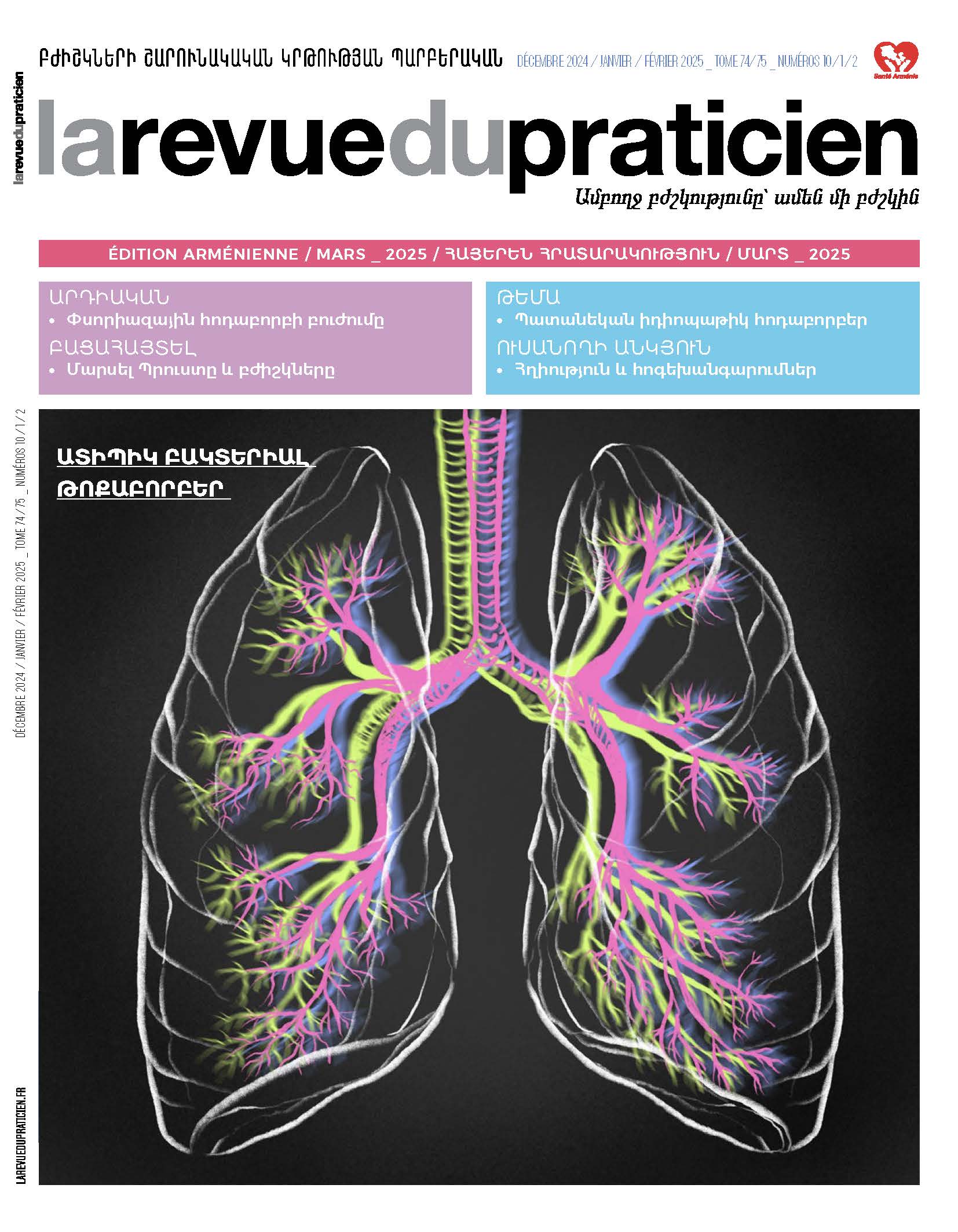Ամփոփագիր
Կենսաբուժական միջոցների կիրառությունը հեղափոխել է պատանեկան իդիոպաթիկ հոդաբորբով (ՊԻՀ) տառապող երեխաների վարումը: Ուռուցքի մեռուկացման գործոն-ալֆան (ՈՒՄԳ), ինտերլեյկին (ԻԼ)-1-ը, ԻԼ-6-ը, ԻԼ-17-ը կամ T լիմֆոցիտների համախթանման ազդանշանները (աբատացեպտ) թիրախավորող այս կենսաբանական բուժամիջոցները, իսկ վերջերս նաև ցածրմոլեկուլային դեղանյութերը՝ յանուս կինազի (JAK) արգելակիչները, զգալիորեն բարելավել են հիվանդների կանխատեսումը: Բացի դրանից՝ ներկայումս փորձարկվում են բազմաթիվ կենսաբուժական միջոցներ: Երեխաների պարագայում կենսաբանական բուժամիջոցների ընդհանուր տանելիությունը նման է մեծահասակների շրջանում դիտարկվածին. անցանկալի երևույթները հիմնականում վարակային, իմունախանգարիչ և ալերգիկ բնույթի են: Պատվաստումների ժամանակացույցի թարմացումը որոշիչ է բուժման հետ կապված բարդությունների կանխարգելման համար: Կարևոր է ՊԻՀ-ով երեխաների կենսաբուժումն իրականացնել մասնագիտացված կենտրոնում, հսկողություն սահմանել դրա արդյունավետության վրա և ապահովել դեղամիջոցների նկատմամբ երկարաժամկետ վերահսկողություն:
